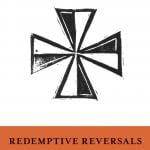This post is part of a series walking through the first volume of Abraham Kuyper’s Common Grace.
In the last chapter Kuyper began his discussion of death. In chapter 29 he continues this discussion by pointing out that it can be seen either as a punishment or as a consequence for disobedience. We often use this distinction with our children–there are times when their actions merit active punishment, but there are also times when their actions have unpleasant results that are consequences with no punishment attached. The active destruction of a sibling’s loved toy might merit punishment, while a stubbed toe as a result of not paying attention despite multiple warnings is a consequence. If death is merely (well, “merely”) a consequnce, then God saving Adam is no injustice at all.
By way of example, Kuyper says that if he warns someone not to drink poison, yet
“against my advice someone neverthless were to take of it, I can even make an attempt to avert the lethal consequnces by administering a strong emetic. Then I have said in full truth, ‘if you take of this you will surely die,’ but I do not in any way contradict myself if afterward I try to save the reckless poison-taker.” (254)
Of course the death that comes with disobedience is not just physical death: “spiritual, physical, temporal, and eternal death set in” on the day of Adam’s disobedience, and would have won had not grace intervened. (254)
And yet, there is also the element of punishment as well. Clearly discipline is a part of the result of Adam’s sin. Which means at the end of the day that in this particular case, consequence and punishment are one.
Which leads to the question of why the punishment/consequence wasn’t immediately executed. This certainly would have prevented much future misery. The problem with this quesiton is that it is looking at the issue from the perspective of man as an individual. What we must do is look at the Fall of man from the perspective of t he work and glory of God. What God made was good. This goodness included not just Adam, but also the organic whole of the future human race.
Which leads to the further question: what is the ‘human race’? It is not, whatever Western liberalism tells us, a superficial sum of indiviudals aggregated as a whole. Rather, it is 1) individuals in “ordered groupings;” and 2) what is common to these groups. That is, it is our “common fund”, as we see in something like music or language. (257-259). For example:
“Human language is absolutely not merely the sum total of the sounds that each individual utters. Rather, human language is a treasure of people as a group and of the human race as a whole; it exists outside of the individual human beings and does not disappear when everybody sleeps or is silent. It continues from age to age and belongs therefore to our humanness and must not be hijacked by an individual for himself or herself alone, for it is the common heritage belonging to everybody.” (259)
All of these good things existed in seed form in Adam and Eve. These things all glorify God and show His majesty. Yet, these things did not yet exist in the Garden. Time was required for their development, and immediately exterminating Adam and Eve–even if deserved–would have cut this future off at the root and made creation a failure.
So death came into the world, but not fully. Death reigns, but doesn’t stop human flourishing–it has no victory or sting.
What we see is that 1) grace comes immediately, in that Adam and Eve are not instantly fully judged; and 2) grace restrains the power/victory of death; 3) the goal of this grace is to: 1. maintain God’s honor; 2. maintain God’s order in the creation; 3. set the stage for eternal election. These three goals are tied together–particular grace, the saving of God’s elect, needs common grace as as stage. Common grace needs particular grace for fulfillment. Thus particular grace is more important in the grand scheme of things, but we are focusing on common grace in this particular series.
More on grace in the next post.
Dr. Coyle Neal is co-host of the City of Man Podcast and an Associate Professor of Political Science at Southwest Baptist University in Bolivar, MO













